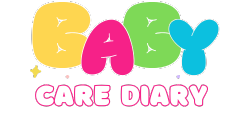Parents have to deal with many problems from the time a child is born to adulthood. One of the problems that a child faces as they grow up is eating issues. Eating problems in children can be a concern for many parents. Some children experience difficulty eating from birth, which prevents them from getting enough nutrition. When your child does not get enough nutrition, their physical and mental growth will not be optimal. However, feeding therapy for babies is an effective method to solve this problem. It helps to improve the child’s eating skills and ensures their healthy growth. I think you will benefit from taking the time to read this article. In this article, we will explore how feeding therapy can solve the eating problems of children. Moreover, as a bonus, we will learn how it leads to proper nutrition for children.
Feeding Therapy For Babies: What is it?
I have seen many parents applying feeding therapy to their children but not knowing what it is. Do you know what Feeding Therapy for Babies is? Feeding therapy is a treatment method that helps solve the eating problems of a child. Sometimes, you may notice that your child is not eating food and is experiencing various problems. At that time, proper feeding therapy can help. Many people say that the therapy that helps children improve their eating skills is called feeding therapy. This therapy is conducted with the help of experts to improve the child’s eating patterns and methods. Children who cannot eat and suffer from malnutrition undergo feeding therapy to improve their eating habits. You can use different types of feeding therapy if you want. I want to emphasize again that it plays an important role in ensuring that the child gets proper nutrition.

How Does Feeding Therapy Work?
Let us now discuss how feeding therapy works. I will explain how it works from my own experience and from things I have seen with my own eyes. Feeding therapy works slowly to solve the child’s eating problems. An uncle next door was giving his baby feeding therapy in a hurry, and some adverse events were occurring. You should always be patient and take your time when starting feeding therapy. Through this therapy, experts observe some important aspects of the child. During this time, experts observe the child’s eating habits, facial muscle strength, and the child’s behavior while eating. The interesting thing is that during this time, experts create specific strategies for the child. These strategies include the right type of food, eating methods, and mouth exercises. This helps the child feel comfortable while eating. Feeding therapy creates a smooth and enjoyable eating experience for the child.
Feeding Therapy You Can Try at Home
If you want, you can apply feeding therapy for your baby at home yourself. However, for this, you have to adopt some methods. Many people research different types of feeding therapy for babies. Here, I will discuss 5 methods of feeding therapy that can be done at home.
1. Facial exercises
You can do various facial exercises to strengthen the baby’s facial muscles, such as the method of measuring the time it takes to laugh like a duck. You can do this if you want. It helps improve the baby’s eating skills.
2. Feed in small portions
Give small amounts of food to the baby and ask him to eat slowly. This will increase the baby’s interest in eating and reduce discomfort. This can be a very effective method for every parent.
3. Make it a habit for your baby to touch his/her own face
Make it a habit for your baby to touch his face before and after eating. It will take some time, but you can do it. This habit will make your baby more attracted to food.
4. Use simple foods
There are many parents who want to feed their baby solid food at the beginning. You should not do this, because it can make the baby lose interest in it at first. Use foods that are easy for the baby to eat. In that case, you can use foods like soft purees or soups. Such foods will make the baby more interested in eating.
5. Create a relaxed environment
A good environment plays an important role in anything. A comfortable environment works like magic while feeding your baby. Create a calm and comfortable environment while feeding. If your baby does not feel any pressure while feeding, he will eat better.

Benefits of Feeding Therapy For Babies
The reason parents are learning about feeding therapy for children is its positive effects. However, many are not clearly aware of the benefits it offers. Here are some unique benefits of feeding therapy for babies.
1. Increases interest in eating food
Ensuring that a child eats the right foods is of utmost importance. Many children are fussy when eating or do not want to eat certain foods. Feeding therapy can help in such situations. It encourages the child to try new foods.
2. Ensures baby’s weight and nutrition
Many children do not get the nutrients they need due to feeding problems, which can lead to weight loss. Feeding therapy helps children maintain proper weight and nutrition.
3. Teaches swallowing and chewing
If your child cannot chew or swallow properly, eating problems will arise. Some children have difficulty chewing or swallowing, making it hard for them to eat. This therapy strengthens their mouth muscles and gradually teaches them eating skills.
4. Reduces gagging and vomiting
Many children gag or vomit while eating. You may often notice this in children around you. But does your child have this problem? Feeding therapy can gradually reduce the sensory sensitivity of the child’s mouth, making it easier for them to swallow food.
5. Eliminates fear or stress while eating
Can your child eat if he feels stressed or scared before eating? The simple answer is no. Some children feel scared or upset at the sight of food. However, feeding therapy helps the child develop positive eating habits. In addition, this therapy makes the child feel comfortable while eating.
6. Makes eating out and socializing easier
Many times, we go to an event when we receive an invitation, and our baby is with us, right? If children are reluctant or afraid of eating, they may face problems when eating out with the family. However, you have no reason to worry because feeding therapy can help. Feeding therapy makes the child confident to eat in different environments.
7. Improves food intake patterns
Some children prefer liquid foods or do not want to eat anything other than certain types of food. Through feeding therapy, children become attracted to new types of foods and develop the habit of eating a variety of nutritious foods.
8. Reduces family stress
When a baby is not eating well, parents become anxious. Don’t you worry about your baby too? Feeding therapy reduces this stress and makes feeding easier for parents.
9. Helps in baby’s brain development
Proper nutrition is very important for the brain development of a child. Feeding therapy helps ensure the child’s mental development through proper food intake. So, start feeding therapy today and strengthen your child’s mind.
10. Develops healthy eating habits
A child’s early eating habits play a significant role in shaping their future eating habits. What you teach your child from an early age, they will continue to do as they grow up. Feeding therapy encourages children to eat healthily from the very beginning.
Who Needs Feeding Therapy?
It has been said many times that not every child behaves the same. Now the question may arise: who needs feeding therapy? Feeding therapy is needed for children. But which type of child needs it? It is needed for children who face various types of problems while eating. It is effective for those who are afraid of eating or refuse to eat. This feeding therapy is needed for children who have nutritional deficiencies. Feeding therapy helps children chew or swallow food. Sometimes, it is seen that those who are dependent on one type of food also need feeding therapy. It is for children who repeatedly gag or vomit while eating. You will need this therapy if you want to strengthen the muscles of the mouth.
Expert Advice On Feeding Therapy For Babies
Let us now discuss expert advice on feeding therapy for babies. According to experts, feeding therapy plays an important role in improving the baby’s eating habits and nutrition. Let us give you more in-depth information with an example. Here is a six-month-old baby I know. When Michael was trying to eat for the first time, he used to gag while eating. He had some other eating problems, such as not being able to chew food. Michael’s mother was worried about this and consulted an expert. On the advice of the doctor, feeding therapy was started for Michael. This therapy involves special exercises to strengthen the muscles of the mouth and gradually changing the type of food. Within a month, he started swallowing food, and his interest in eating also increased. Experts advise that feeding therapy should be done patiently for babies who have eating problems. You must be patient when you start feeding therapy for your baby. Experts also say that this therapy is necessary to address the baby’s nutritional deficiencies and ensure normal growth.

All about the article
Feeding therapy is very important for children to develop eating habits and ensure proper nutrition. Start feeding therapy at the right time and in the right way to make the child healthy and strong. In the case of feeding therapy, always take the advice of a pediatrician or therapist. Please comment on how much you have benefited from this article. If you want, you can share it with your acquaintances; it will benefit them. If you want, you can share it on your social media with #feeding therapy for babies.






